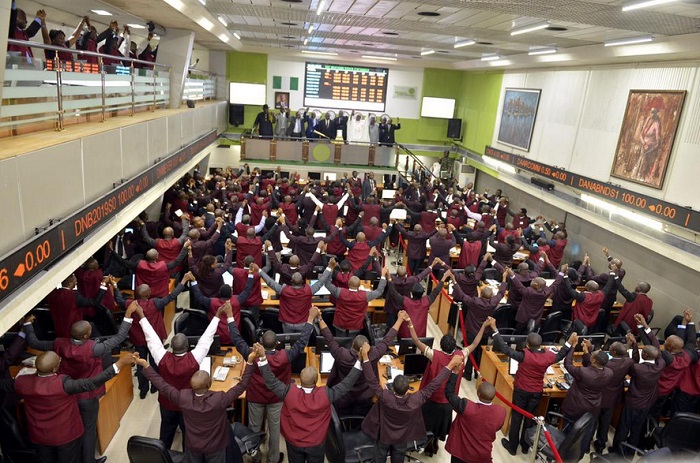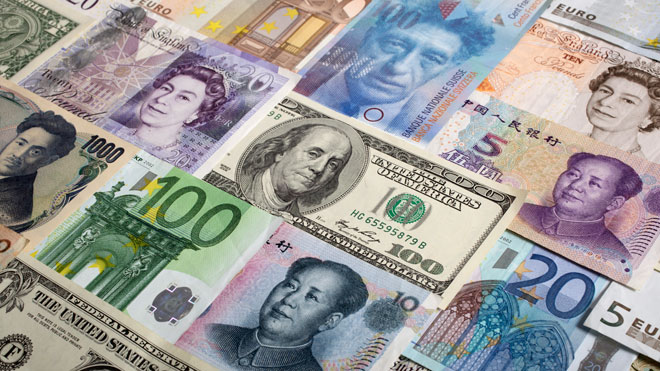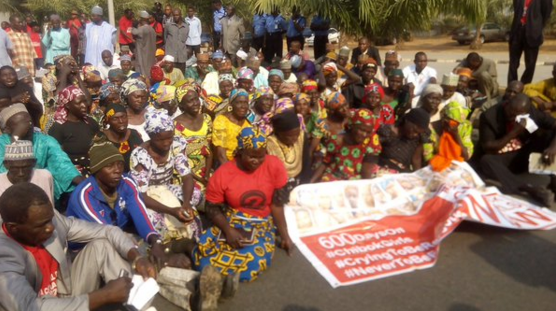Brokers and dealers hail the President during his visit to the Nigerian Stock Exchange in Lagos, March 12
It is 2016, Nigeria’s promised year of hope, but capital flight is still its ever-present self, with the Nigerian Stock Exchange (NSE) losing N1.22 trillion in the eight trading days of the year so far.
The country’s stock exchange also lost N430 billion in the last 48 hours, following the Central Bank of Nigeria (CBN) announcement of the state of the economy and its decision to cease sale of foreign exchange to bureau de change agents.
The stock exchange closed at a market capitalisation of N9.851 trillion in 2015, and continued on a decline till Monday, when it closed the trading session at N9.062 trillion.
The stock however fell below the N9 trillion mark on Tuesday, closing the day at N8.954 trillion – the first trading day after the CBN announcement – to sink to its lowest point since 2012.
Advertisement
The negative ripples continued to move out of the Nigerian economic system, as the naira crashed to a 43-year low and the NSE lost another N321 billion on Wednesday to close at a market cap of N8.633 trillion.
Experts believe that the CBN’s state-of-the-economy address and BDCs forex ban are having immediate negative effects on the economy, causing investors to withdraw from the Nigerian bourse to safer securities on the continent.
“This fall in oil prices also implies that the CBN’s monthly foreign 4 earnings has fallen from as high as US$3.2 billion to current levels of as low as US$1 billion,” Godwin Emefiele, governor of the CBN, said on Monday.
Advertisement
“Yet, the demand for foreign exchange by mostly domestic importers has risen significantly. For example, the last we had oil prices at about US$50 per barrel for an extended period of time was in 2005.
“At that time, our average import bill was N148.3 billion per month. In stark contrast, our average import bill for the first nine months of 2015 is N917.6 billion per month, even though oil prices are now less than US$35 per barrel.
“The net effect of these combined forces unfortunately is the depletion of our foreign exchange reserves. As of June 2014, the stock of Foreign Exchange Reserves stood at about US$37.3 billion but has declined to around US$28.0 billion as of today.”
With the current economic realities in the country, the NSE, with the aim of hitting N200 trillion market cap by 2019, may well be moving away from its target.
Advertisement







